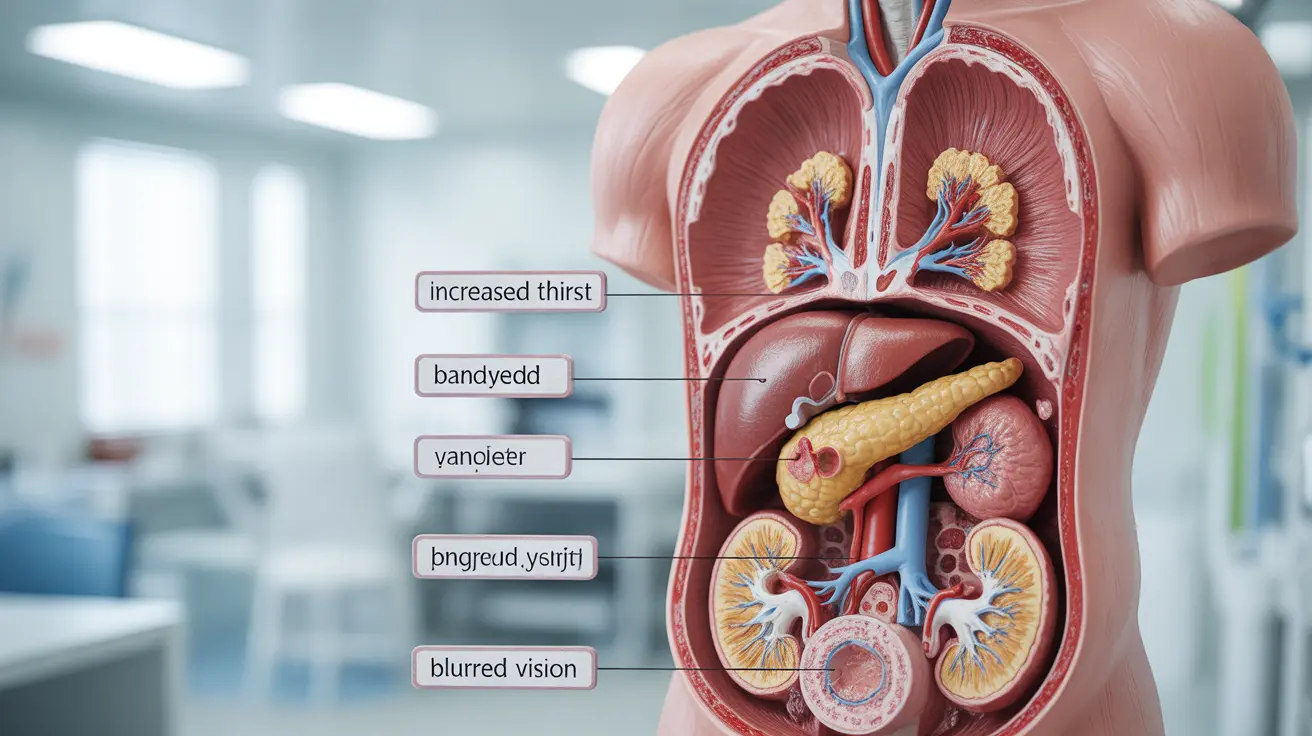When it comes to blood sugar-related conditions, hyperglycemia and diabetes are often mentioned together, yet they represent distinct medical concepts that require clear understanding. While closely related, these conditions have unique characteristics, causes, and treatment approaches that healthcare providers and patients need to recognize.
This comprehensive guide explores the relationship between hyperglycemia and diabetes, helping you understand how these conditions differ, overlap, and impact your health. We'll examine their distinct symptoms, causes, and treatment strategies to provide a clear picture of both conditions.
Defining the Key Terms
Hyperglycemia refers to high blood sugar levels at any given time, while diabetes is a chronic metabolic disorder characterized by persistent blood sugar regulation problems. This fundamental difference is crucial for understanding how each condition affects the body and requires different approaches to management.
What is Hyperglycemia?
Hyperglycemia occurs when blood glucose levels rise above normal ranges (typically above 140 mg/dL after eating or above 100 mg/dL when fasting). It can be temporary or chronic and may occur in people with or without diabetes.
What is Diabetes?
Diabetes is a complex metabolic disorder where the body either cannot produce insulin (Type 1) or cannot effectively use the insulin it produces (Type 2). This chronic condition requires ongoing management and monitoring of blood sugar levels.
Symptoms and Recognition
Hyperglycemia Symptoms
Common signs of high blood sugar include:
- Increased thirst
- Frequent urination
- Fatigue
- Blurred vision
- Headaches
- Difficulty concentrating
Diabetes Symptoms
Diabetes symptoms often include:
- Persistent hyperglycemia
- Unexplained weight loss (especially in Type 1)
- Slow wound healing
- Increased hunger
- Numbness or tingling in hands or feet
- Recurring infections
Causes and Risk Factors
Causes of Hyperglycemia
High blood sugar can result from various factors:
- Stress
- Illness or infection
- Certain medications
- Poor diet choices
- Lack of physical activity
- Undiagnosed diabetes
Causes of Diabetes
Diabetes development involves different factors:
- Genetic predisposition
- Autoimmune reactions (Type 1)
- Lifestyle factors (Type 2)
- Obesity (Type 2)
- Age and family history
- Gestational factors in pregnancy
Treatment Approaches
Managing Hyperglycemia
Treatment for high blood sugar varies depending on whether the person has diabetes:
- Dietary modifications
- Increased physical activity
- Stress management
- Medication adjustments (if applicable)
- Regular blood sugar monitoring
Diabetes Management
Diabetes requires comprehensive, long-term care:
- Regular insulin or medication
- Blood sugar monitoring
- Dietary planning
- Exercise routines
- Regular medical check-ups
- Education and lifestyle modifications
Frequently Asked Questions
What is the difference between hyperglycemia and diabetes?
Hyperglycemia is a condition of elevated blood sugar at any given time, while diabetes is a chronic metabolic disorder characterized by the body's inability to properly regulate blood sugar levels. Hyperglycemia can be a symptom or complication of diabetes, but it can also occur in people without diabetes due to various temporary factors.
What are the common symptoms that indicate hyperglycemia versus those indicating diabetes?
While both conditions can share symptoms like increased thirst and frequent urination, hyperglycemia symptoms are usually temporary and may include headaches and difficulty concentrating. Diabetes symptoms are more persistent and can include additional signs like unexplained weight loss, slow wound healing, and recurring infections.
Can hyperglycemia occur in someone without diabetes, and what causes it?
Yes, hyperglycemia can occur in people without diabetes due to factors such as stress, illness, certain medications, poor diet, or lack of physical activity. This type of hyperglycemia is usually temporary and resolves when the underlying cause is addressed.
How is hyperglycemia treated differently in people with and without diabetes?
For people without diabetes, hyperglycemia treatment typically focuses on addressing the underlying cause through lifestyle modifications. For people with diabetes, treatment includes these measures plus specific diabetes management strategies, including medication or insulin therapy and regular blood sugar monitoring.
What long-term complications can arise if diabetes or hyperglycemia is left untreated?
Untreated hyperglycemia and diabetes can lead to serious complications including cardiovascular disease, kidney damage, nerve damage, vision problems, and poor wound healing. Diabetes requires consistent management to prevent these long-term health issues, while occasional hyperglycemia in non-diabetic individuals typically poses less risk if addressed promptly.




